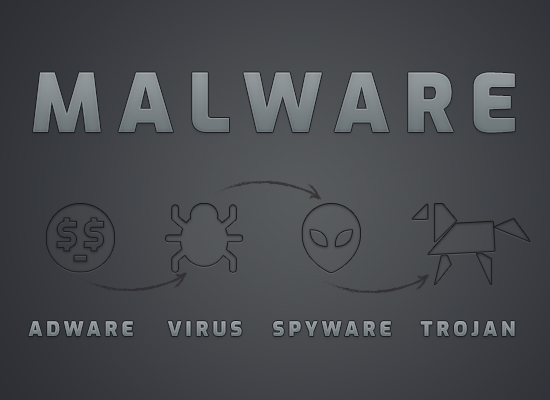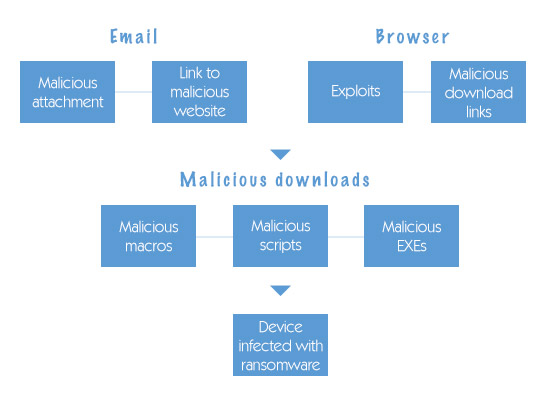The Trojan Horse Malware Effects On Computers
Updated on October 21, 2022, by Xcitium

Named after the giant wooden horse the Grecian army used to mount a surprise attack inside Troy during the Trojan War, a trojan horse virus exists to provide a backdoor for malware or for hackers into a system. Trojan horse virus authors engineer them in such a way that they show up as harmless, convenient, and useful programs. This way makes users unintentionally install these dangerous programs on their computers and introduce Trojan horse malware effects into the system.
The Trojan horse virus gathers passwords and personal Trojan horse virus gathers passwords and personal information for as long as 200 days if left undetected.. When the hackers gain the data, they use all of the stolen information in several ways. They sell it to the black market, steal bank account access, or ask for ransom.
In 2016, the highest distribution of malware infections was the Trojan horse virus. During the last quarter of 2016, 74.99% of malware infections were trojans. This shows how effective Trojan horse viruses in tricking users to install them.
Distribution of malware infections of desktop PCs worldwide as of 4th quarter 2016, by type.
The Different Trojan Horse Malware Effects
Keyloggers keep a record of anything users sort on their keyboard. It’ll eventually secure passwords and usernames on any accounts they logged within. Cybercriminals will be able to compromise all their accounts which can result in identity theft. Identity theft can harm their accounts, their reputations, and, most of all, their lives. Cybercriminals can use their bank accounts to buy products or even blackmail any person.
Manipulation of Requests
Cybercriminals complete their attack through the use of a Trojan horse virus. When cybercriminals successfully acquire users’ bank account details, they can manipulate the total amount and destination account while they confirm and encode details of the transaction. This won’t even be a noticeable Trojan horse malware effect.
Turning Endpoints into Zombies
Cybercriminals might not want anything except enriching themselves through network resources. However, Distributed-Denial-of-Service (DDOS) is a rampant attack to flood the victim server with thousands of traffic connections until it is incapable to handle the load and goes offline. When this is detected, the hosting site will be forced to disable due to security features, but that doesn’t mean they purchased millions of computers just to conduct the attack. It’s actually a strategic plan since they’re using other computers that won’t lead to them and who won’t lead to their real IP addresses.
Victims Lose Control Over Their Computers
The Trojan-DDoS can start up the Denial of Service (DoS) attacks. Not only it can affect endpoints, but also websites. By sending multiple requests – from an endpoint and several other infected computers – the attack can overload the target address which leads to a denial of service.
Hence, the end user loses his/her control over his/her endpoint. The user’s endpoint becomes an accessory to a cybercrime he/she didn’t want in the first place.
Undetectable Trojan Horse Virus
Ordinary antivirus can’t detect sophisticated Trojan horse virus. Due to its deceitful characteristics, it can hide its activity from the Task Manager. A Rootkit Trojan may be able to subvert the software that is expected to find it (e.g. antivirus). The removal of a Rootkit Trojan can be difficult or practically impossible. Most especially in cases where the rootkit stays in the kernel, reinstallation of the operating system may be the only way to resolve the problem.
The Qualities that AEP Serves to Eliminate Trojan Horse Malware Effects
Host Intrusion Prevention System Basic
HIPS represents a preemptive approach to network security and utilizes advanced techniques to detect and block attempts to breach a computer system. It utilizes several advanced techniques to scan network traffic and look for patterns in the data. If a possible breach is discovered, HIPS can take several different defensive actions depending on the type and severity of the detected Trojan Horse malware effects. Defensive actions can include alerting the user and/or administrator and automatically dropping suspicious data streams.
Machine Learning Through The Artificial Intelligence
Machine learning is a vast and ever-changing field, and Xcitium uses the latest machine learning techniques to determine to determine if a file is malicious or benign. Xcitium has created a predictive model started with collecting a huge number and variety of malicious and benign files. Features are extracted from files along with the files’ label (e.g. good or bad). Finally, the model is trained by feeding all of these features to it and allowing it to crunch the numbers and find patterns and clusters in the data. When the features of a file with an unknown label are presented to the model, it can return a confidence score of how similar these features are to those of the malicious and benign sets. That effectively defends the endpoints from the Trojan Horse malware effects. These concepts underpin VirusScope, Xcitium’s file and behavioral analysis engine residing on the local client.
AEP Self Protection
As Xcitium Advanced Endpoint Protection (AEP) protects your endpoints against trojan horse malware effects, the AEP application itself routinely comes under attack by malicious applications trying to circumvent its protection. Fortunately, Xcitium AEP includes robust self-protection countermeasures that prevent malicious applications from gaining control or circumventing Xcitium AEP services.
Endpoint Application Control
There are multiple routes for an unknown code to execute on a host CPU, and Application Control provides a key tool in controlling trojan horse malware effects. Application Control provided by Xcitium Advanced Endpoint Protection (AEP) blocks unauthorized executables on servers, corporate desktops, and fixed-function devices. Using a dynamic trust model and innovative security features such as local and global reputation intelligence, real-time behavioral analytics, and auto-immunization of endpoints, it immediately thwarts advanced persistent threats—without requiring labor-intensive list management or signature updates.
Combining Endpoint Protection Platform (EPP) and Endpoint Detection Response (EDR)
Xcitium Advanced Endpoint Protection (AEP) combines both superior prevention with the ability to detect/respond to threats as they emerge. Xcitium AEP goes beyond prevention provided by conventional signature-based detection and AV. Xcitium AEP includes multiple preventative capabilities including AV, HIPS, ongoing Artificial Intelligence/Machine Learning monitoring and layers on the ability to manage and monitor endpoints to quickly resolve issues. Advanced Endpoint Protection provides deep visibility into file activity on your endpoints, detecting malicious behavior that other security solutions may miss, and provides you the control investigate, contain and remediate your entire endpoint environment.
If there will be an instance that a Trojan horse virus will get through the containerization technology, Xcitium AEP can respond immediately when this happens. It tracks any malicious activities that are not supposed to occur while the endpoint environment is in use or idle.
Xcitium AEP: Trojan Horse Malware Effects Remover
Cybersecurity experts encourage enterprises to choose an endpoint protection that has a superb disaster prevention. It promotes a healthy working environment for the whole enterprise as the employees and clients are at peace when doing business. Xcitium Advanced Endpoint Protection defends the endpoint environment from Trojan horse malware effects. It is the next-generation cyber security system that blocks bad files and automatically contains unknown files in a virtual container using Default Deny Platform™ and containerization technology. The unknown “contained” file is analyzed and an accelerated verdict is obtained through the Valkyrie cloud-based advanced malware analysis platform. It gives you the trojan horse virus protection.
Xcitium Advanced Endpoint Protection gives a lightweight, scalable Default Deny Platform with a unique endpoint security approach. This results in complete protection and enterprise visibility. The app-based platform removes the difficulty in using and solving the issues. Provisioned in minutes, Advanced Endpoint Protection also contains unified IT and security management console, that through an app-enabled platform reduces the effort of managing your Android, iOS, OSX, Linux, and Windows devices, on every segment of your physical and virtual networks.
Experience the optimal endpoint environment using Xcitium AEP! Sign-up for the 30-day free trial now!
Related Sources:
What is Anti Malware Protection?
What is Malware?
What is Malware Scanner?
Best Online PC Scan Tools
What is EDR?
Application Management Software
Trojan Horse Definition



